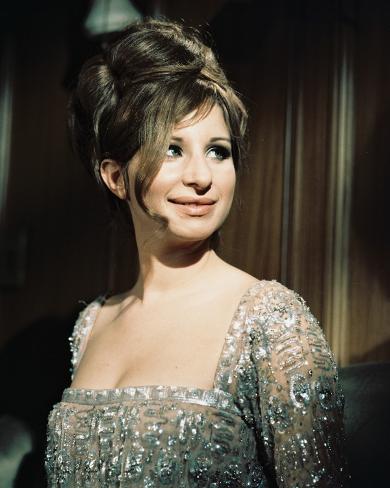Funny Girl Photo Biography
Source(google.com.pk)"I've done everything in the theatre except marry a property man," Fanny Brice once boasted. "I've acted for Belasco and I've laid 'em out in the rows at the Palace. I've doubled as an alligator; I've worked for the Shuberts; and I've been joined to Billy Rose in the holy bonds. I've painted the house boards and I've sold tickets and I've been fired by George M. Cohan. I've played in London before the king and in Oil City before miners with lanterns in their caps." Fanny Brice was indeed show business personified, and in this luminous volume, Herbert G. Goldman, acclaimed biographer of Al Jolson, illuminates the life of the woman who inspired the spectacularly successful Broadway show and movie Funny Girl, the vehicle that catapulted Barbra Streisand to super stardom.
In a work that is both glorious biography and captivating theatre history, Goldman illuminates both Fanny's remarkable career on stage and radio--ranging from her first triumph as "Sadie Salome" to her long run as radio's "Baby Snooks"--and her less-than-triumphant personal life. He reveals a woman who was a curious mix of elegance and earthiness, of high and low class, a lady who lived like a duchess but cursed like a sailor. She was probably the greatest comedienne the American stage has ever known as well as our first truly great torch singer, the star of some of the most memorable Ziegfeld Follies in the 1910s and 1920s, and Goldman covers her theatrical career and theatre world in vivid detail. But her personal life, as Goldman shows, was less successful. The great love of her life, the gangster Nick Arnstein, was dashing, handsome, sophisticated, but at bottom, a loser who failed at everything from running a shirt hospital to manufacturing fire extinguishers, and who spent a good part of their marriage either hiding out, awaiting trial, or in prison. Her first marriage was over almost as soon as it was consummated, and her third and last marriage, to Billy Rose, the "Bantam Barnum," ended acrimoniously when Rose left her for swimmer Eleanor Holm. As she herself remarked, "I never liked the men I loved, and I
Barbra Streisand is an American singer, actress, director and producer and one of the most successful personalities in show business. Born in Brooklyn, New York, in 1942, from a middle class Jewish family, she grew up dreaming to become an actress (or even an actress / conductor, as she happily describes her teenager years in one of her concerts). After a brief period as nightclub singer in New York and Off-Broadway performer, in which she began to rise interest and admiration thanks to her original and powerful vocal talent, Streisand debuted on Broadway in the 1962 musical comedy "I Can Get It For You Wholesale" by Harold Rome, receiving a Tony Award Best Supporting Actress nomination and a New York Drama Critics Poll award. The following year, she reached great commercial success with her first Columbia solo releases "The Barbra Streisand Album"(multiple Grammy winner, including "Best Album of the Year") and "The Second Barbra Stresand Album" (her first RIAA Gold Album); her first albums, mostly devoted to composer Harold Arlen, brought her also critical praise and, most of all, large popularity in all US. In 1964 she continued to increase her fame due to a new original Broadway show, "Funny Girl" by Jule Styne and Bob Merrill, a musical based upon the life of 30's comedienne Fanny Brice; the show main song "People" became her first hit and Barbra appeared on Time magazine cover. After many TV show appearances as guest star, like "The Judy Garland Show" (for which she was nominated for an 1963 Emmy), she signed an exclusive contract with CBS for a series of annual TV special: "My Name is Barbra" (1964, Emmy winner) and "Color me Barbra" (1965, her first work in color) were extremely successful. After a brief London stage period and the birth of her son Jason Gould (with then-husband Elliott Gould), in summer 1967 she gave a memorable free concert in New York, "A Happening in Central Park", that was filmed and later cut as a TV special; then, she flew to Hollywood for her first movie, the film version of her Broadway success "Funny Girl": the picture, directed by William Wyler, opened in 1968 and became an hit even abroad, making Barbra an international "superstar" and multiple award winner, including her first Oscar as Best Actress. After continuing screen musical experiences with Gene Kelly's "Hello Dolly" (1969) and Vincente Minnelli's "On a clear day You Can See forever" (1970), she preferred to run into comedies, like "The Owl and the Pussycat" (1970) and smash hit "What's Up Doc"(1972) and dramas, like almost surreal "Up the Sandbox" (1972) and celebrated classic "The Way We Were" (1973), by Sydney Pollack with Robert Redford, in which Streisand gave of her finest performance. The song "The Way We Were" (written by Marvin Hamlish and the Bergmans) became one of Barbra's biggest hits and most memorable and famous songs. Returning on TV for a new special conceived as a musical journey all around many different World styles, "Barbra Streisand and other Musical Instruments" (1973), she returned (for contractual reasons) to her Fanny Brice role in "Funny Lady"(1975) and she adventured herself into her first extremely personal filming project "A Star is Born" (1976), one of the biggest hits of the year, for which she won Best Actress Golden Globe and her second Oscar for the song "Evergreen". Always extremely busy on the discography side, with a generally -at least- new album per year throughout all the 70's and 80's, she collected many high successful projects in the period, including songs as "You Don't Bring Me Flowers" (duet with Neil Diamond), "Enough is Enough" (with Donna Summer) , "The Main Event" (from a Barbra's comedy with friend Ryan O'Neal) and the album "Guilty", written for her by Bee Gee's Barry Gibb, that sold more than 10 million copies Worldwide. Streisand debuted as a director with the musical drama "Yentl" (1983), portraying a Jewish girl who has access to the world of culture disguised as a man. The movie received generally positive reviews and the beautiful score by Michel Legrand and lyricist Marilyn and Alan Bergman stands up as one of Streisand's finest musical works. At the 1983 Oscars, the movie was presented with many nominations (winning in 2 categories) but not received a Best Directing nomination, causing great controversy and bitterness among fans: nowadays, this exclusion is still considered among the biggest "snubs" in Oscar History. After the unexpected immense success of Grammy Award winn
Funny Girl Photo Wallpapers Images Pics Collection

Funny Girl Photo Wallpapers Images Pics Collection

Funny Girl Photo Wallpapers Images Pics Collection

Funny Girl Photo Wallpapers Images Pics Collection

Funny Girl Photo Wallpapers Images Pics Collection

Funny Girl Photo Wallpapers Images Pics Collection

Funny Girl Photo Wallpapers Images Pics Collection

Funny Girl Photo Wallpapers Images Pics Collection

Funny Girl Photo Wallpapers Images Pics Collection

Funny Girl Photo Wallpapers Images Pics Collection

Funny Girl Photo Wallpapers Images Pics Collection

Funny Girl Photo Wallpapers Images Pics Collection

Funny Girl Photo Wallpapers Images Pics Collection

Funny Girl Photo Wallpapers Images Pics Collection

Funny Girl Photo Wallpapers Images Pics Collection

Funny Girl Photo Wallpapers Images Pics Collection

No comments:
Post a Comment